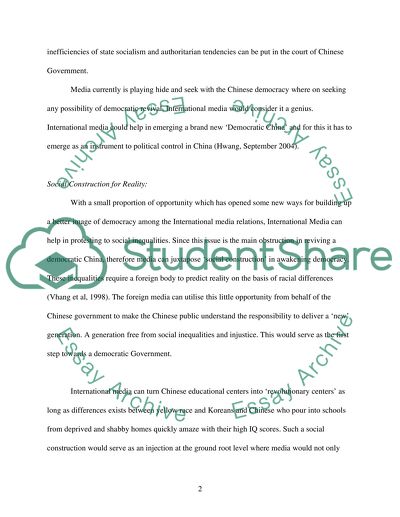Cite this document
(“Democracy in China Essay Example | Topics and Well Written Essays - 1500 words”, n.d.)
Retrieved from https://studentshare.org/politics/1501060-democracy-in-china
Retrieved from https://studentshare.org/politics/1501060-democracy-in-china
(Democracy in China Essay Example | Topics and Well Written Essays - 1500 Words)
https://studentshare.org/politics/1501060-democracy-in-china.
https://studentshare.org/politics/1501060-democracy-in-china.
“Democracy in China Essay Example | Topics and Well Written Essays - 1500 Words”, n.d. https://studentshare.org/politics/1501060-democracy-in-china.


